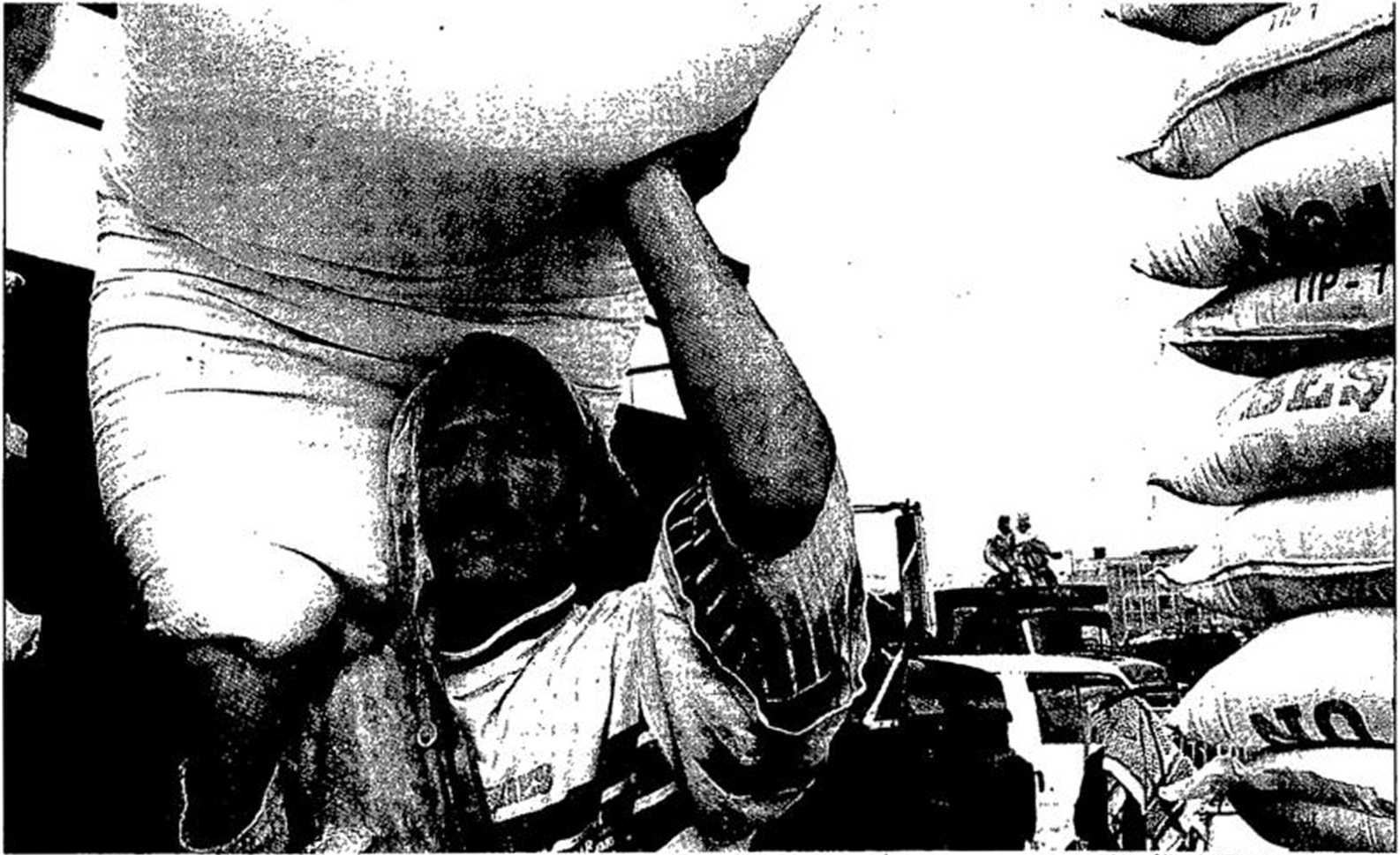266370941
Revue de Presse-Press Review-Berhevoka ęape-Rivista Stampa-Dentro de la Prensa-Basin Ozeti
Hy Susan Sachs and Judith Miller
Toward the end of 2000, when Saddam Husseirfs skimming from the oil-for-food program for Iraq kicked into high gear, reports spread ąuickly to the program’s supervisors at the United Nations.
Oil industry esperts told Security Council members and Secretary General Kofi Annan’s Staff that Iraq was demanding under-the-table payoffs from its oil buyers. The British mis-sion distributed a background paper to Council members outlining what it called “the systematic abuse of the program” and described how Iraq was shaking down its oil customers and suppliers of goods for kickbacks.
When the report landed in the UN’s Iraq sanctions committee, the clear-inghouse for all contracts with Iraq, it caused only a few ripples of con-sternation. There was no action, dip-lomats said, not even a formal meeting on the allegations.
Since Saddam’s fali, the oil-for-food program has received far morę scru-tiny than it ever did during its six years of operation. In Washington, the General Accountability Office has es-timated that Saddam siphoned at least $10 billion from the program by illi-citly trading in oil and collecting kickbacks from companies that had UN approval to do business with Iraq.
Multiple investigations now under way in Washington and Iraq and at the UN all center on one question: How did Saddam amass so much money while under international sanctions?
An examination of the program, the largest in the UN’s history, suggests a straightforward answer: The United Nations let him do it.
“Everybody said it was a terrible shame and against international law, but there was really no enthusiasm to tackle it,” said Peter van Walsum, a Dutch diplomat who headed the Iraq sanctions committee in 1999 and 2000, recalling the discussions of il-legal oil surcharges. “We never had elear decisions on anything. So we just in effect condoned things."
Former officials and diplomats who dealt directly with the program now say that the bribery and kickback racket was an open secret for years.
The program, created in 1996, was
an ambitious attempt to keep up intti-national pressure on Iraq to disarm while helping the Iraqi people survive the sanctions imposed on Saddam’s govemment after its invasion of Kuwait in 1990.
The effort was fmanced by the sale of Iraqi oil. A political compromise al-lowed Iraq to decide to whom it would sell its oil and from whom it would buy relief supplies. It was up to the UN to make surę that the price Iraq
set for the oil was fair and that the proceeds were buying relief goods,
and not being funneled to Saddam's coffers or being used for illicit arms.
As the flow of money ballooned, the UN, with an annual budget of just $1.5 billion, was responsible for collecting and disbursing as much as $10 billion a year in Iraqi oil revenues. Despite an elaborate system for overseeing oil-for-food contracts, corruption never seemed to be the chief concem of any-one involved. The United States and Britain were focused on keeping materiał related to illicit weapons out of Iraq. For the UN bureaucracy, the pri-
ority was keeping goods flowing to the Iraqi people.
In the halls of the UN, the program became a battleground for the com-peting commercial interests and political agendas of the 15 individual nations that madę up the Security Council, diplomats said. Those same nations madę up the Iraq sanctions committee, which took action only by a consensus that could be blocked by any member.
The result was a paralysis that trans-lated into acquiescence toward matters like oil smuggling and kickbacks.
When the committee learned from a press report in late 2001 of allegations that an Indian company was helping Iraq purchase embargoed materials for a
Heralb^KLEribune August 13,2004

JodoŚilva for The New York Times
Goods donated for Iraąis under the UN oil-for-food program turned up in February on sale at a black market in Raghdad.
30
Wyszukiwarka
Podobne podstrony:
Revue de Presse-Press Review-Berhevoka ęape-Rivista Stampa-Dentro de la Prensa-Basin Ózeti Internati
Revue de Presse-Press Review-Berhevoka ęape-Rivista Stampa-Dentro de la Prensa-Basin Ózeti * Je disa
Revue de Presse-Press Review-Berhevoka ęape-Rivista Stampa-Dentro de la Prensa-Basin Ozeti w Radical
Revue de Presse-Press Review-Berhevoka ęape-Rivista Stampa-Dentro de la Prensa-Basin ózeti Dealing w
Revue de Presse-Press Review-Berhevoka ęape-Rivista Stampa-Dentro de la Prensa-Basin Ozeti The Patri
Revue de Presse-Press Review-Berhevoka ęape-Rivista Stampa-Dentro de la Prensa-Basin Ozeti L’offensi
Revue de Presse-Press Review-Berhevoka ęape-Rivista Stampa-Dentro de la Prensa-Basin Ozeti Americain
Revue de Presse-Press Review-Berhevoka ęape-Rivista Stampa-Dentro de la Prensa-Basin Ozeti LE FIGARO
Revue de Presse-Press Review-Berhevoka ęape-Rivista Stampa-Dentro de la Prensa-Basin Ozełi La popula
Revue de Presse-Press Review-Berhevoka ęape-Rivista Stampa-Dentro de la Prensa-Basin Ózełi contróle-
Revue de Presse-Press Review-Berhevoka ęape-Rivista Stampa-Dentro de la Prensa-Basin Ozełi 16 AOUT
Revue de Presse-Press Review-Berhevoka ęape-Rivista Stampa-Dentro de la Prensa-Basin ózełi FINANCIAL
* Revue de Presse-Press Review-Berhevoka ęape-Rivista Stampa-Dentro de la Prensa-Basin OzetiAl-Sadr
Revue de Presse-Press Review-Berhevoka ęape-Rivista Stampa-Dentro de la Prensa-Basin Ozeti The prosp
Revue de Presse-Press Review-Berhevoka ęape-Rivista Stampa-Dentro de la Prensa-Basin Ozeti keeping t
Revue de Presse-Press Review-Berhevoka ęape-Rivista Stampa-Dentro de la Prensa-Basin Ozeti sue proba
Revue de Presse-Press Review-Berhevoka ęape-Rivista Stampa-Dentro de la Prensa-Basin OzetiIn lraq, S
Revue de Presse-Press Review-Berhevoka ęape-Rivista Stampa-Dentro de la Prensa-Basin Ozeti of the fr
Revue de Presse-Press Review-Berhevoka ęape-Rivista Stampa-Dentro de la Prensa-Basm Ozeti Internatio
więcej podobnych podstron